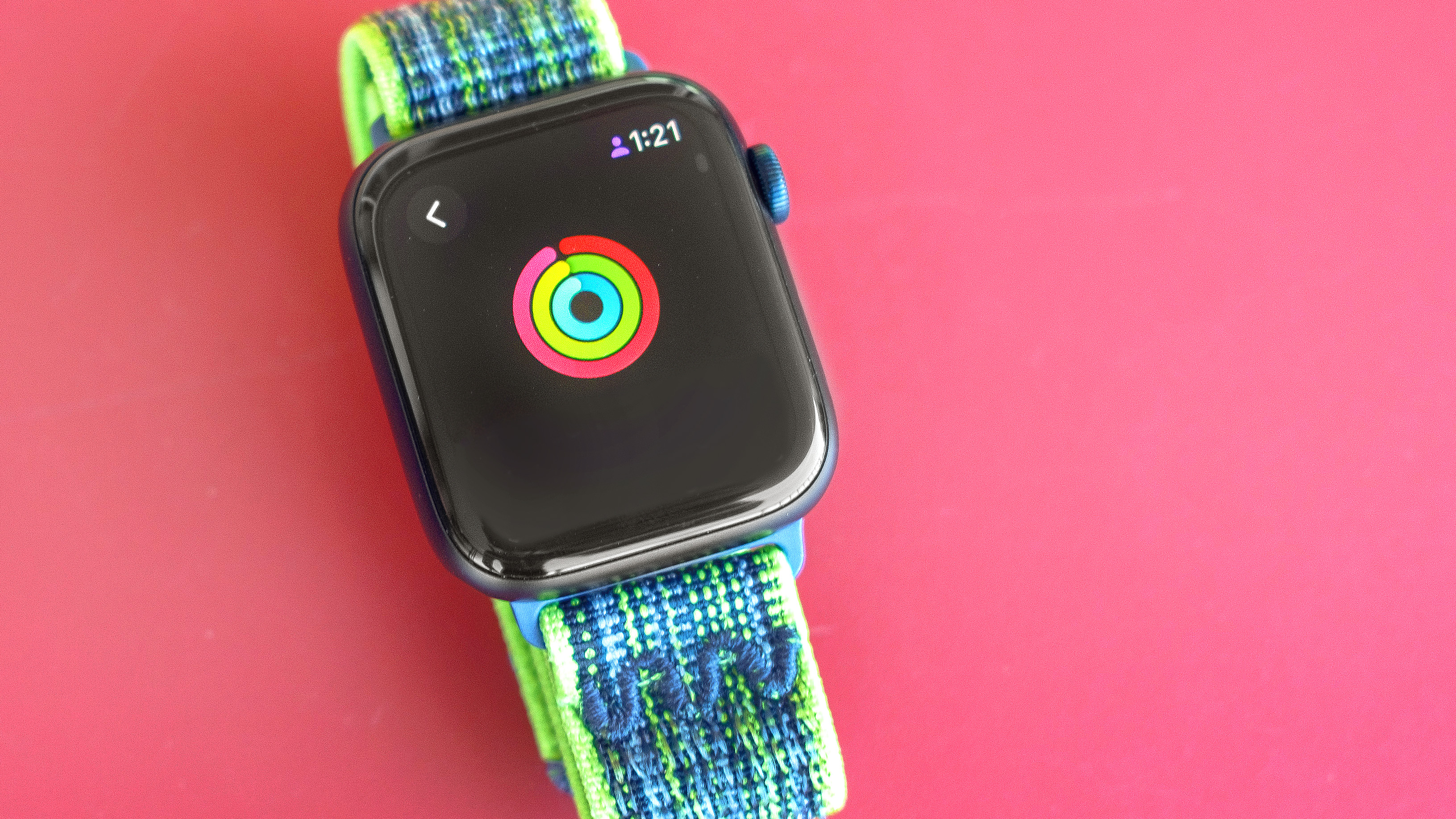Tom's Guide Verdict
The JBL Charge 3 improves water resistance, battery life and volume over its predecessor, but sacrifices sound quality in the process.
Pros
- +
Waterproof
- +
Loud
- +
Good battery life
Cons
- -
Weaker sound quality than JBL Charge 2+
- -
Limited app
Why you can trust Tom's Guide
With each new version of the Charge, JBL has made minor improvements to an already good Bluetooth speaker. The Charge 2 boosted bass; the 2+ added moderate water resistance. With the new Charge 3, JBL has added even more features, including better water resistance and a longer lasting battery, but its new design has diminished the impressive sound quality found on the Charge 2+. The result is a $150 speaker that can hold its own against more expensive competitors, but not against its predecessor.
Design
Ditching the hard shell used since the original Charge, the Charge 3 features a mesh fabric exterior that brings the UE Boom 2 to mind. It was definitely time for a visual refresh, and the new cover looks more modern and feels more comfortable in your hand. The design keeps the exposed bass radiators at each end of the cylinder, which vibrate as music plays. The Charge 3 is available in black, blue, gray, red and teal.
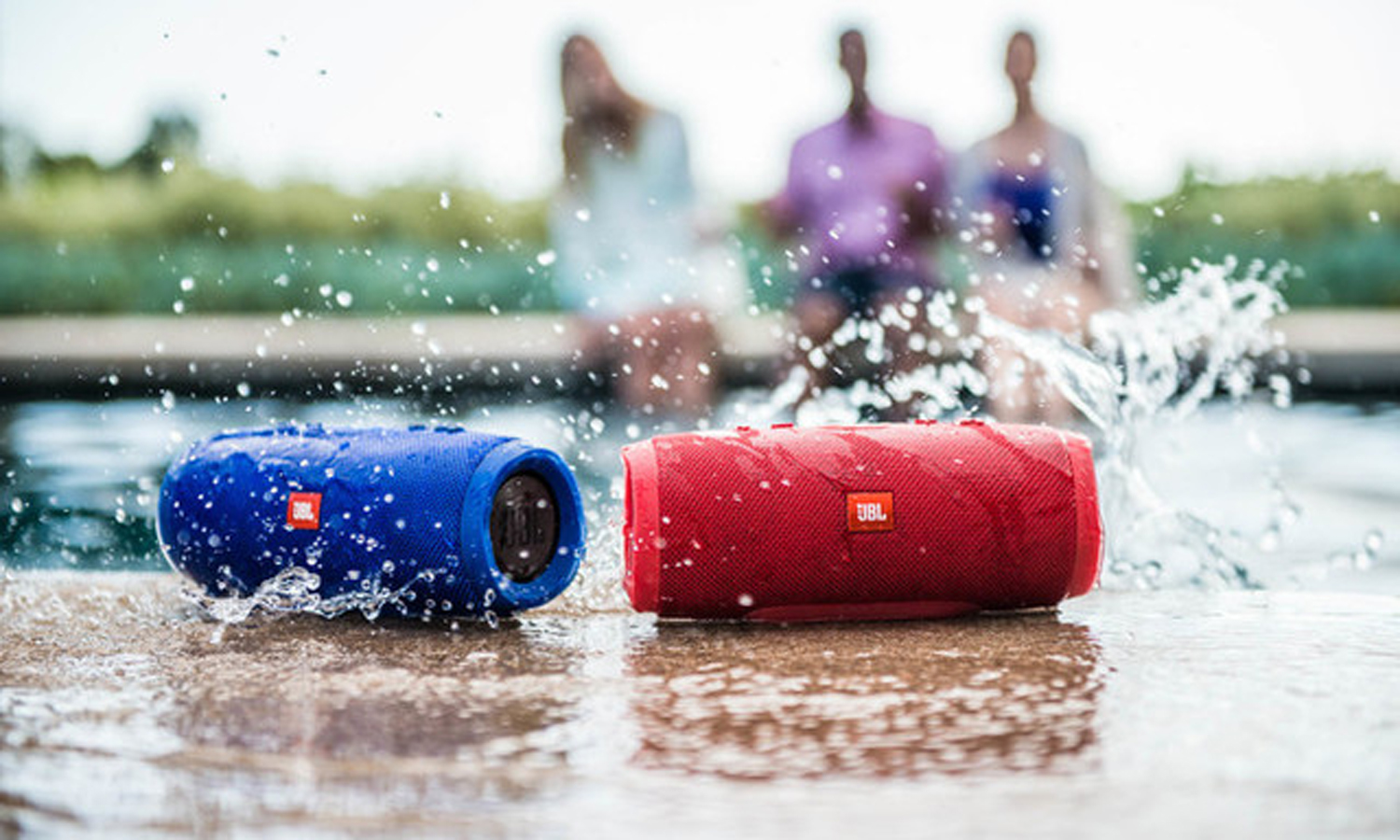
The Charge 3 also grew in size: at 8.4 x 3.5 inches, it's longer and a bit wider than the 7.4 x 3.1-inch Charge 2+ and quite bigger than the 7.1 x 2.6-inch UE Boom 2. The speaker stretches the definition of portable at this size, but I could still carry it with one hand.
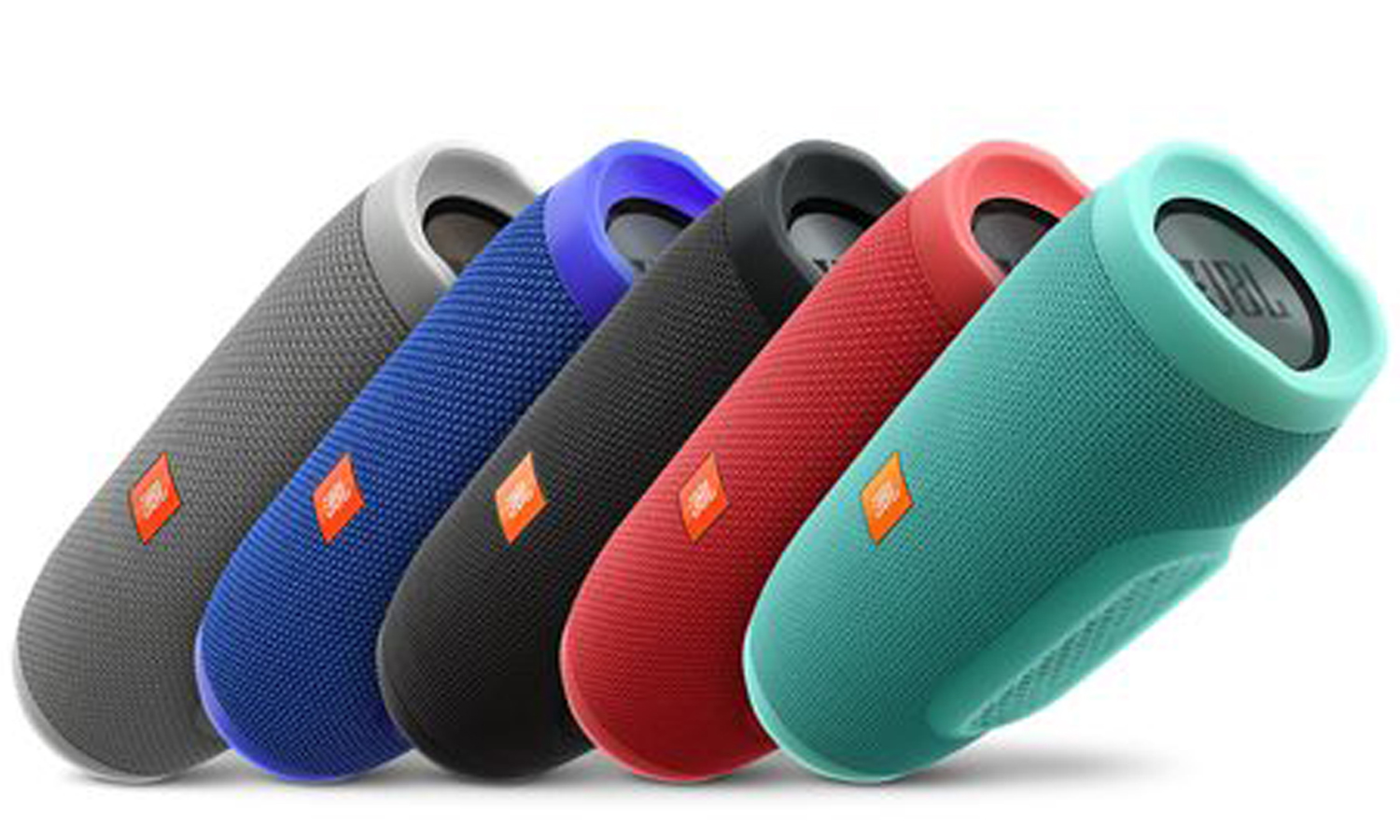
Taking advantage of the extra space, JBL added a play/pause button along with the volume and Bluetooth pairing buttons on top of the speaker. But it still lacks a skip button, which I missed whenever I had to use my phone to change songs. JBL also placed a Connect button on top that lets you pair the speaker with another compatible JBL wireless speaker to double up the sound.
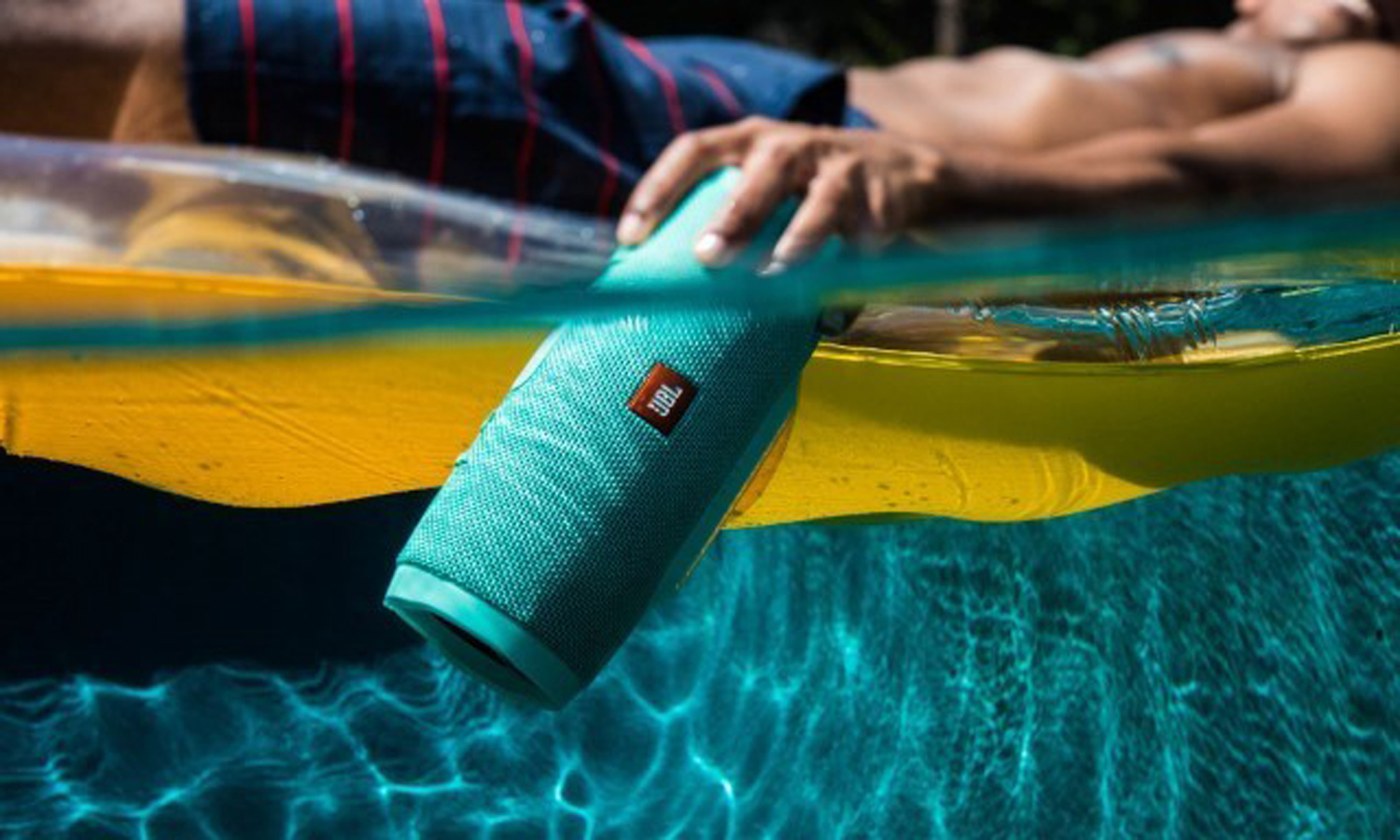
Ruggedness
JBL moved the micro USB port for recharging the battery — along with the 3.5mm auxiliary jack and a USB port for powering mobile devices — under a sealed cover near the bottom of the speaker. This improves the water resistance of the speaker; at IPX7, it can handle being submerged in water up to 1 meter deep for 30 minutes. I ran it under a faucet and let it sit in a full sink for 5 minutes. It kept playing and showed no harmful effects.
The new design looks more modern and feels more comfortable in your hand.
Performance
The Charge delivers good sound quality — as good as more expensive models such as the Boom 2. But it doesn't sound as impressive as than the Charge 2+, which produced better audio than many speakers that cost more than it.
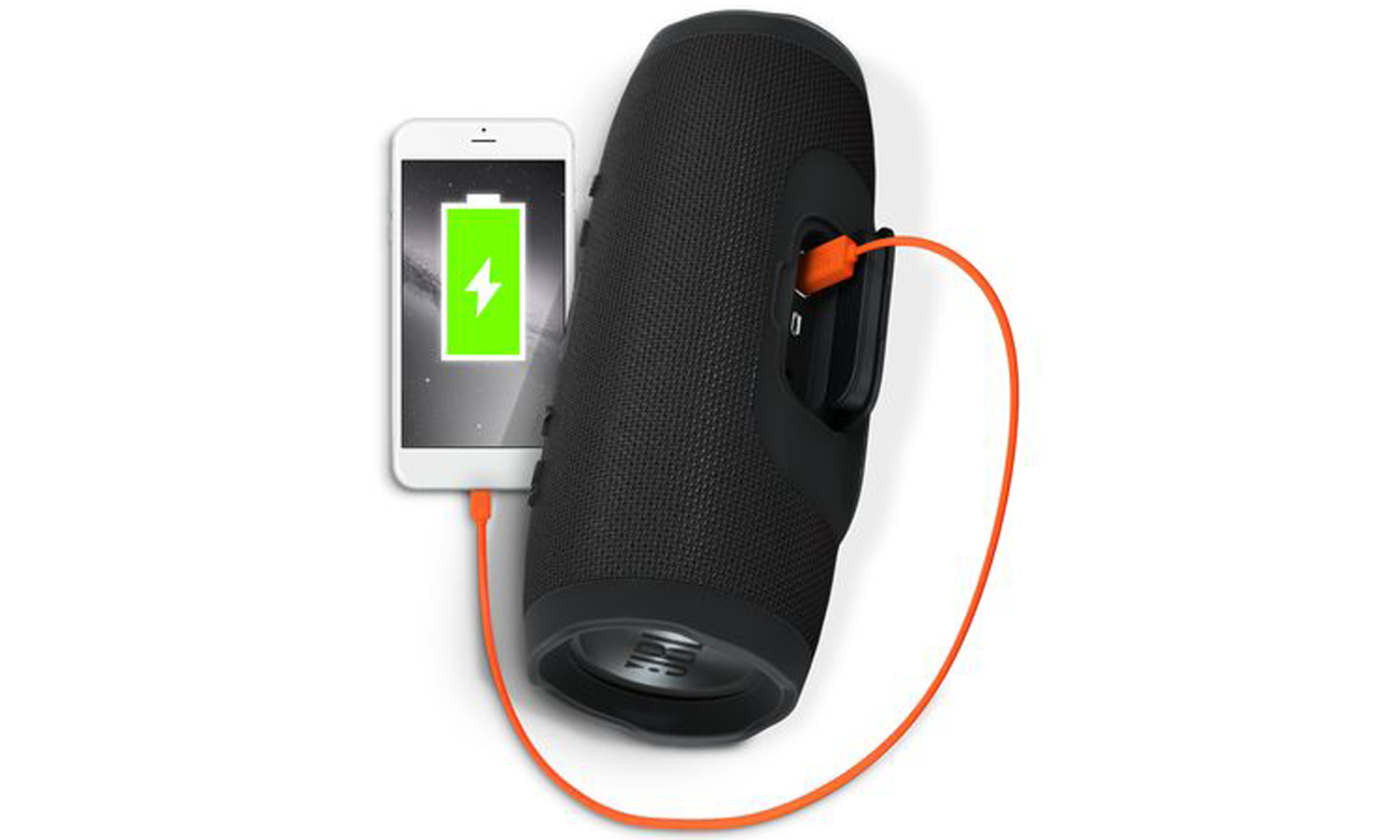
The bass on Justin Timberlake's "Can't Stop The Feeling!" rumbled more deeply on the Charge 3 than on the Boom 2, but it lacked the detail that the Charge 2+ produced. The layers of sound on Radiohead's "Burn the Witch" had good depth, but some of the instruments muddled together. Vocals also aren't as clear on the Charge 3 as they were on the 2+.
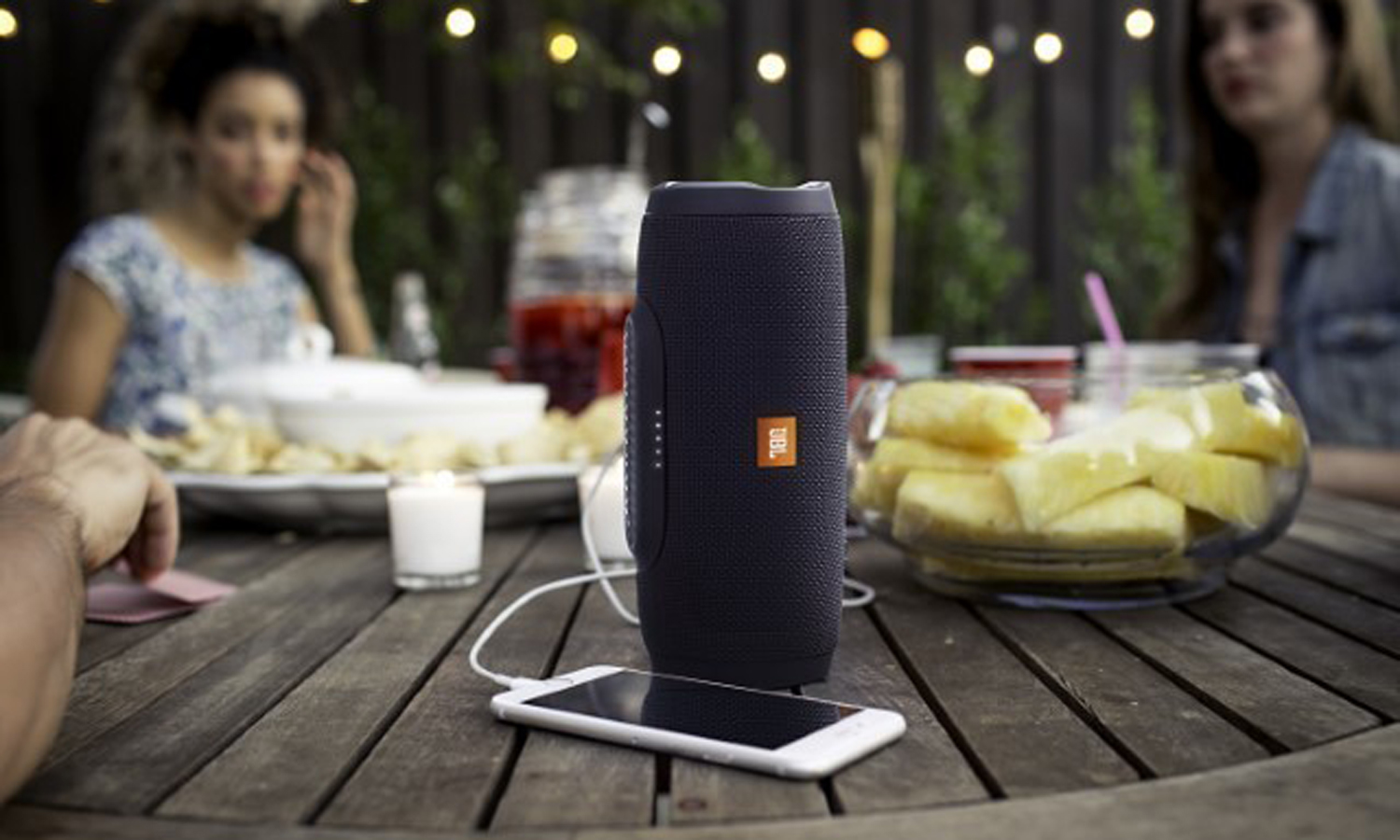
The Charge 3 can definitely fill a room with sound. I measured it at over 90 decibels, though it sounded distorted over 85 — similar to the Boom 2.
MORE: Best Bluetooth Speakers for Home or On-the-Go
Wireless and Software
The Charge 3 paired easily with iOS and Android devices. JBL doesn't state the expected wireless range, but I was able to keep a solid signal from 75 feet, on a par with the UE Boom 2.
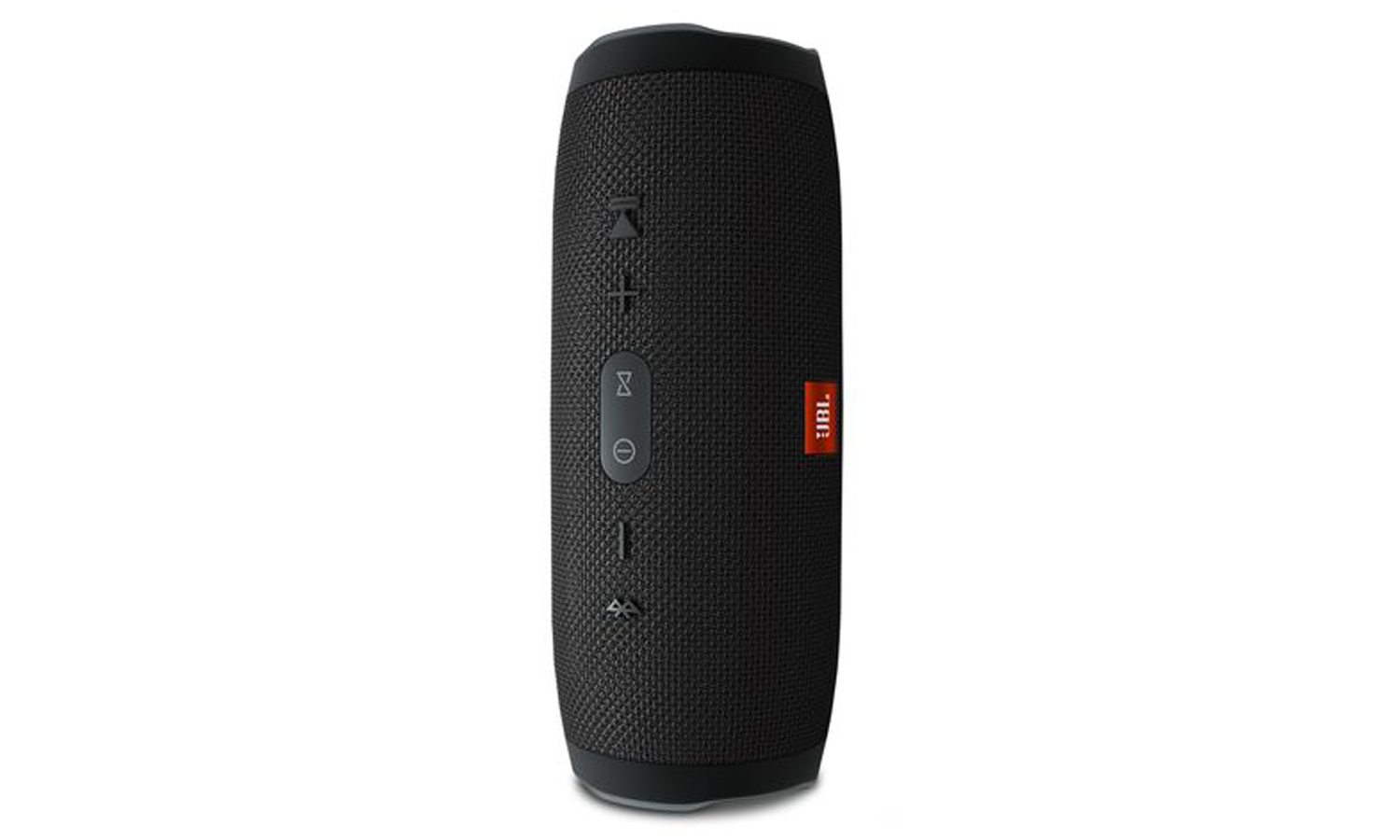
JBL's free Connect app for iOS and Android lets you pair the Charge 3 with other compatible JBL speakers such as the Flip 3. (You can also do this without the app by pushing the Connect button on each speaker.) I found the connection between the Charge 3 and Flip 3 tenuous, as the Flip often lost the signal. The app also doesn't add much to the experience — it lacks the additional features you'll find on UE apps, like EQ adjustments and alarms.
After listening for more than 15 hours, I still had three out of five lights left on the battery indicator.
Speakerphone
The Charge 3 includes a speakerphone, like many Bluetooth speakers. While I could hear people well through the speaker, the people I spoke with said the Charge 3 made my voice sound muddled and bass-y compared with the iPhone's built-in option.
Battery
JBL improved the battery life of the Charge 3 significantly. It now rates its battery life at 20 hours, up from 12. That's also better than the UE Boom's 15 hours. That estimate may be low; after listening for more than 15 hours, at low and moderate volume, I still had three out of five lights left on the power indicator on the bottom of the speaker.
The bass on Justin Timberlake's "Can’t Stop The Feeling!" rumbled more deeply on the Charge 3 than on the Boom 2, but it lacked the detail that the Charge 2+ produced.
Per its name, the Charge can also power mobile devices via USB, functioning as a portable 6,000-mAh battery when the rechargeable battery is full.
MORE: Our Favorite Outdoor (Waterproof) Speakers
Bottom Line
This is a case of two steps forward, one step back. The Charge 3 has an attractive new appearance, better water resistance and more battery life. But the changes have turned a speaker with excellent sound into one that's just good.
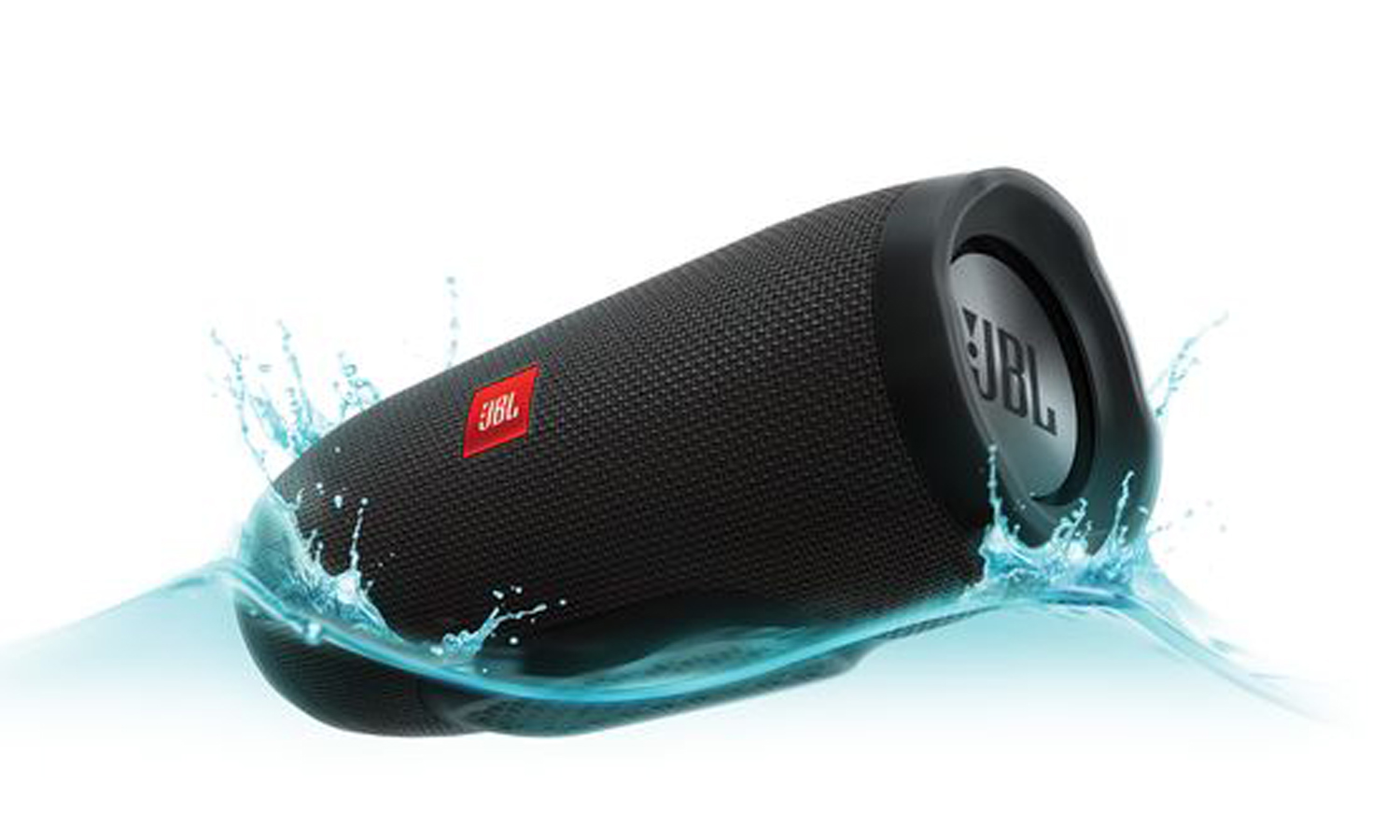
At $150, the Charge 3 is cheaper than the $200 UE Boom 2 or the Fugoo Style, but more expensive than the $100 UE Roll 2 or the JBL Flip 3. It delivers better features and sound quality than the $100 models, but not to the extent of the $200 models. For many people, if you're looking to save a few dollars versus the Boom 2, you likely won't be disappointed. But if you've already got a Charge 2+, you may want to hold onto it instead of upgrading.

Michael Gowan is a freelance technology journalist covering soundbars, TVs, and wireless speakers of all kinds of shapes and sizes for Tom’s Guide. He has written hundreds of product reviews, focusing on sound quality and value to help shoppers make informed buying decisions. Micheal has written about music and consumer technology for more than 25 years. His work has appeared in publications including CNN, Wired, Men’s Journal, PC World and Macworld. When Michael’s not reviewing speakers, he’s probably listening to one anyway.
